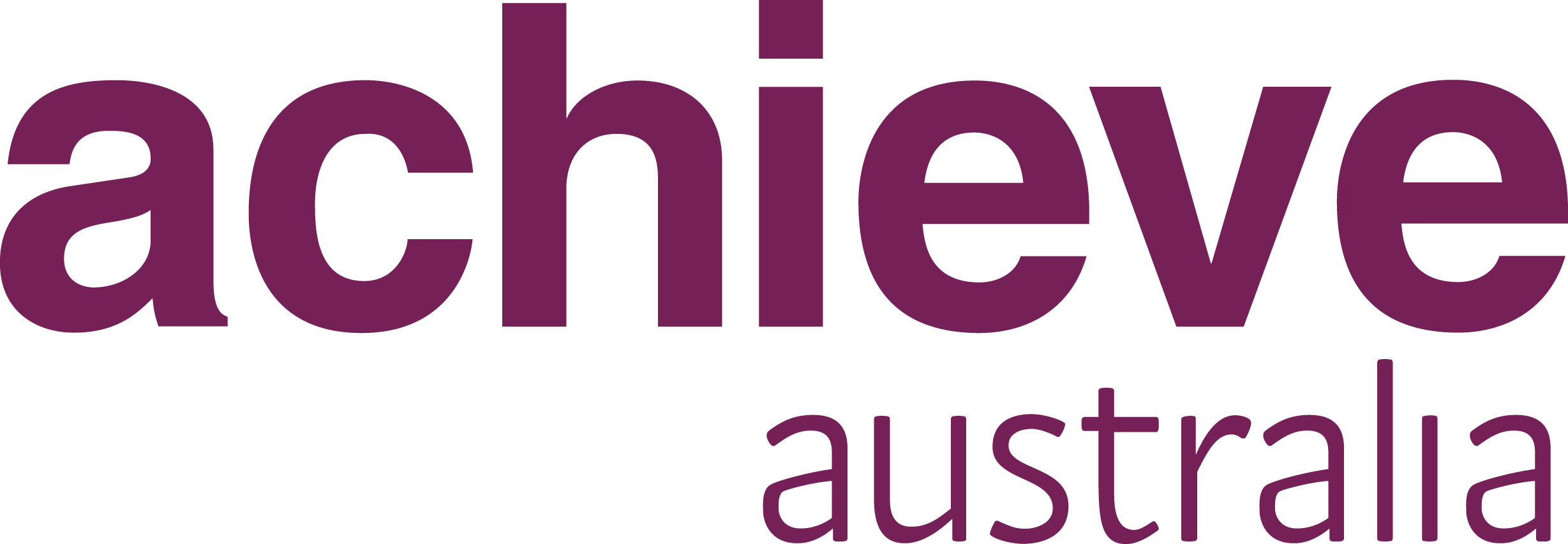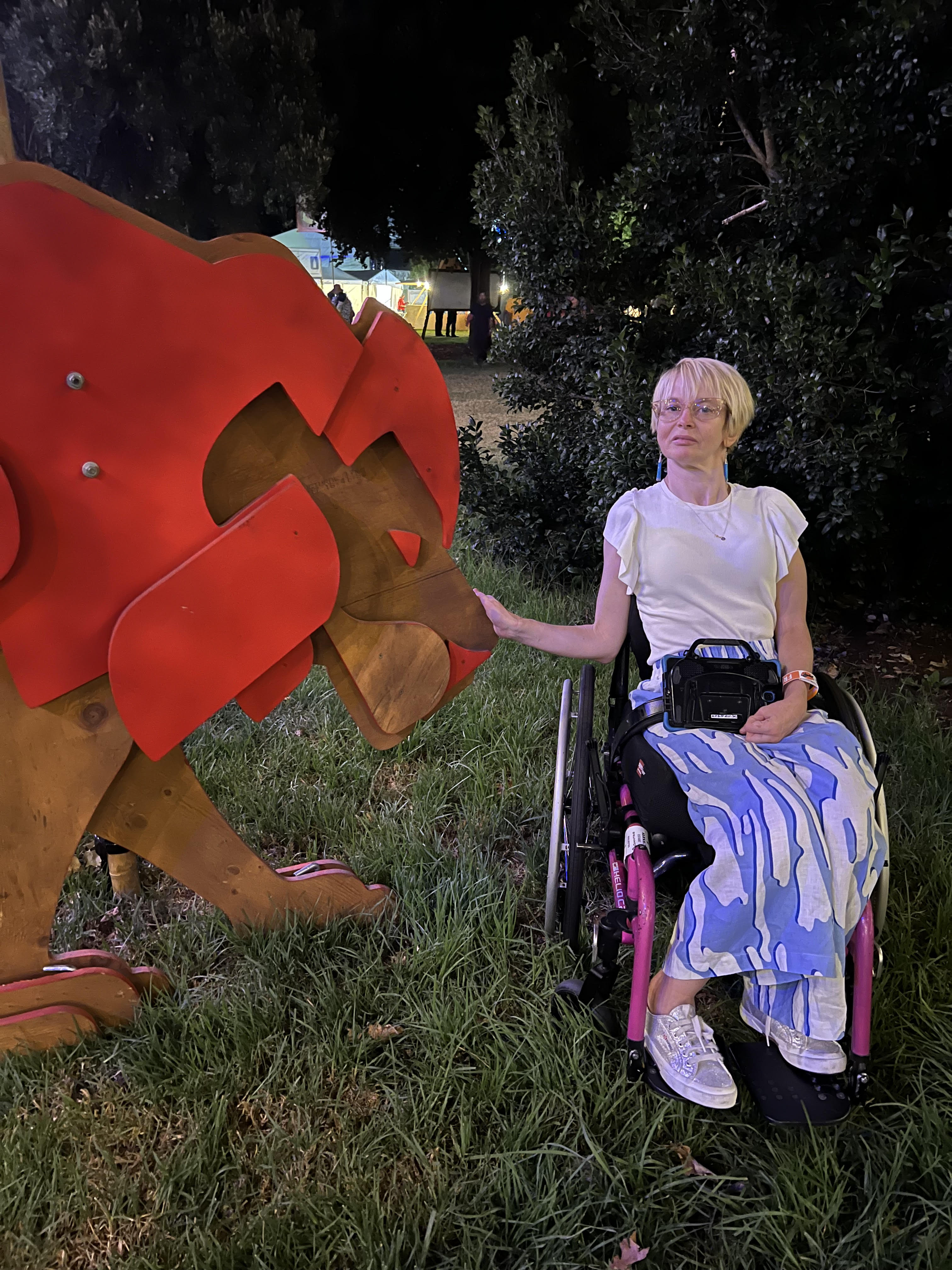28 March 2024
By Achieve Researcher and Writer, Fi Bridger
Many renowned music stars including Taylor Swift, Pink, and Coldplay, have graced stages in Australia in recent times. For me, the true measure of the success of these big acts lies in their commitment to accessibility for all concert-goers, regardless of their abilities.
It's imperative music artists cater to people who are blind, visually impaired, deaf, hearing impaired, use mobility aids, or who have non-visual disabilities, ensuring an inclusive experience for everyone eager to enjoy their music.
Accessibility features needed include hearing loops, ramps, sunflower stars, braille materials, guide dogs, and companion dogs equipped with headphones.
Celebrities who get it
Taylor Swift made her Australian concerts fully accessible including making Hidden Disabilities Sunflower stars available. This simple tool enables people to voluntarily share a disability or condition that may not be immediately apparent and that assistance is required. Taylor also provided accessible seating, sign language interpreters, and assistive listening devices at her shows.
“Happy disabled” fan Chloe Hayden, the actor from Heartbreak High TV series was impressed. She said, "The staff were great! Accessible concerts should be the expectation, not the exception”. Agree!
Chloé has been diagnosed with autism, ADHD and campaigns against ableism. She appreciated Taylor Swift for her efforts to make her concerts inclusive for fans with disabilities.
Taylor Swift wants to make everything in her concerts accessible to everyone. If you have purchased a digital download of her album, you may even request an accessible copy of the purchased track or album lyrics by emailing taylorswift@umgstores.com.
Pink, the American singer-songwriter known for her high-energy performances, also made efforts to ensure her concerts were accessible to fans with disabilities.
Other accessibility accommodations
Increasingly common accessibility practices at events and venues for individuals with disabilities include reserved seating options with unobstructed views and easy access to entrances and exits.
We are also seeing the supply of assistive listening devices to enhance the experience for those with hearing impairments and arranging sign language interpreters to translate lyrics for deaf or hard of hearing attendees.
Sensory accommodations, like providing noise-cancelling headphones or creating sensory-friendly spaces, cater to individuals with sensory sensitivities, ensuring a comfortable and enjoyable experience. Venue staff are trained to provide assistance and support to patrons with disabilities, further enhancing accessibility.
And before concerts, accessible ticketing options, such as online platforms compatible with screen readers, offer convenience and independence in purchasing tickets. While designated accessible parking spaces near venue entrances provide ease of access at events.
My own experience as a concert goer
During my recent trip to the WOMAD festival in Adelaide, I experienced how accessibility and inclusivity are being practiced. It was an absolute blast!
The vibrant atmosphere, fantastic music, and delicious food made it an unforgettable experience. I especially appreciated the "Take a Rest" seating banks strategically placed at the main stages, offering a comfortable spot for those who needed a break or who used mobility aids.
WOMADelaide’s inclusivity extended to welcoming assistance animals and providing accessible toilet facilities along the sealed cycleway, including fully equipped private change facilities for people with disabilities. I couldn't spot hearing loops or braille signage, but they might have been present.
The festival's location in a botanical garden presented challenges for chair users due to the uneven terrain. This made it tough for support workers to navigate. Nevertheless, the volunteers were incredibly kind and helpful, always ready to lend a hand or offer advice.
Overall, WOMADelaide was a fantastic experience, showcasing the beauty of inclusivity amidst the challenges of its unique setting.
By incorporating accessible tools and practices, music popstars, organisers, festivals and venues can demonstrate their commitment to inclusivity and ensure that all fans can enjoy their music and live experiences.
More is being done each year and that makes me confident that accessibility will eventually be commonplace everywhere. Hope it is one day soon.
Explore more topics
- Accessibility
- inclusion
- Achieve Australia
- disability
- belonging
- Community
- Employment
- The Sewing Basket
- Advocacy
- disability employment
- Accessible
- My Life My Say
- Celebrating people we support
- NDIS
- 2022
- Meet our Achievers
- blog
- people with disability
- travel
- women with disability
- Art
- Australia
- COVID-19
- Disability services
- Good nutrition
- Guildford
- Health tips
- Mental wellbeing
- NDS
- Sharing milestones
- Sydney
- achievable
- assistance dogs
- depression
- disability communications
- disability inclusion
- election
- employee of the year
- intellectual disability
- motherhood
- pregnancy
- social inclusion
- support workers

